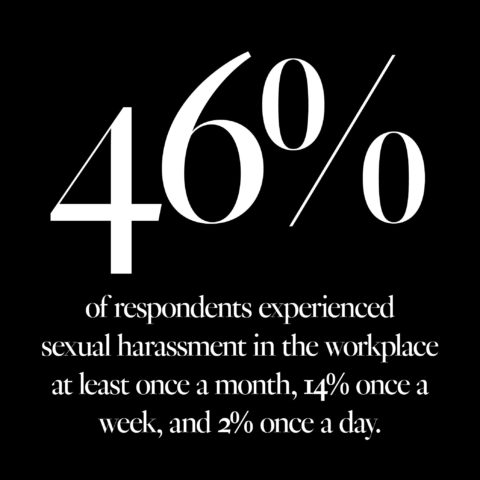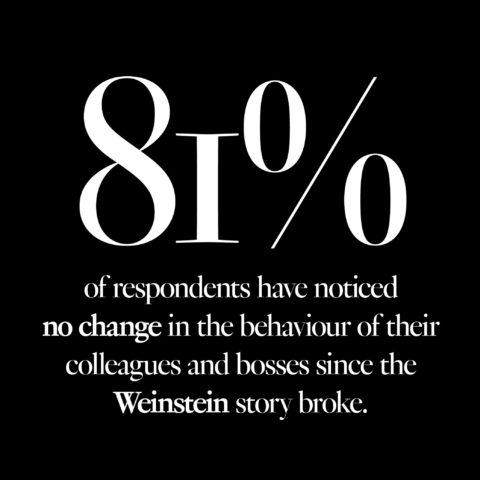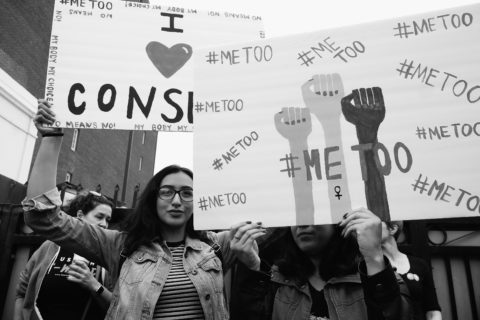73% of the Respondents to Our ‘Sexual Harassment’ Survey Have Observed or Experienced Harassment in the Workplace
There is hope among women around the world—across generations, countries and industries—that the #MeToo moment we’re living through, brought on by the force of the Harvey Weinstein news, will set us on the path toward a safer working environment. Through a recent survey about sexual harassment in the workplace conducted by FASHION, which involved a web-based questionnaire that readers anonymously and voluntarily responded to, we got closer to the numbers. Here’s what we learned.
46% of total respondents (of which 86% are female) have experienced or observed sexual harassment in the workplace at least once a month, 14% at least once a week, and 2% once a day. The harassment ranged from overhearing or being the recipient of crude comments, being asked out on dates even after turning someone down, and being on the receiving end of unwanted physical contact by colleagues or superiors.

A whopping 50% of respondents are unaware of the legislation in Canada that deals with harassment in the workplace, and 42% are not familiar with the anti-harassment policy or procedure at their specific place of work. Most of the incidents recounted by respondents in the survey involve a skewed power dynamic: employees or managers of a business harassed by the owner; employees by their superiors; or younger employees by older colleagues. What was also striking about the experiences respondents shared is that some of them date back 20 or 30 years, proving that incidents of sexual assault and harassment—even when “officially” resolved—continue to haunt the survivors even decades later.
Considering we now live in a post-Weinstein era, we were also curious to learn whether the fallout from his story might have begun to influence workplace dynamics. 25% of respondents said the story has encouraged them to come forward with incidents of sexual harassment and abuse, which they might not have felt comfortable doing before, while 37% said they would have spoken up even before the story broke. While only 21% say they were extremely likely to report these incidents pre-Weinstein (and 14% very likely), 41% say they are extremely likely (and 22% very likely) to report them now.
However, 81% have noticed no change in the behaviour of their colleagues and bosses since the Weinstein story broke. The 19% that have noticed a difference have observed changes such as: less unwarranted touching, fewer crude jokes, and male colleagues who are more careful with their words and more reserved in their behaviour.

And of course, the movement is not without its fair share of apprehension: 41% are worried that innocent people might be considered guilty due to false claims and 33% are nervous that the accused may not always get a fair shot at defending themselves. When it comes to whether they believe the #MeToo movement will have lasting consequence, 45% of respondents believe the culture of silence is now being lifted and abuses of power will no longer be tolerated, while 40% are not sure if it will lead to actual change. Only time will tell whether the movement affects real, lasting change. Regardless, lets keep the conversation going.








